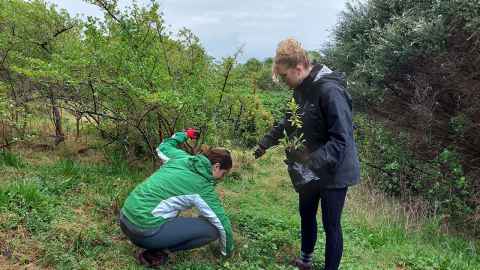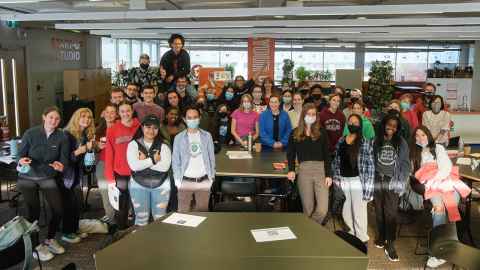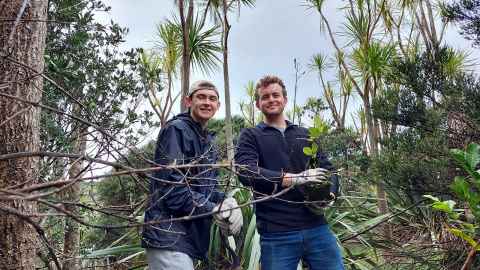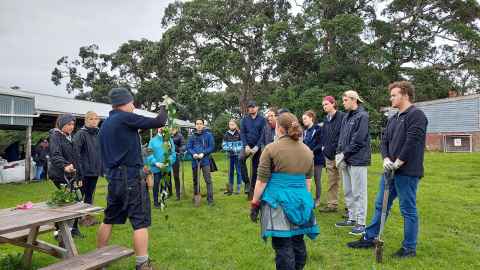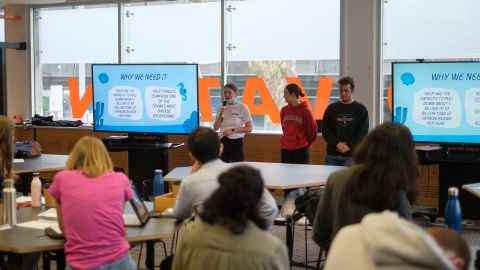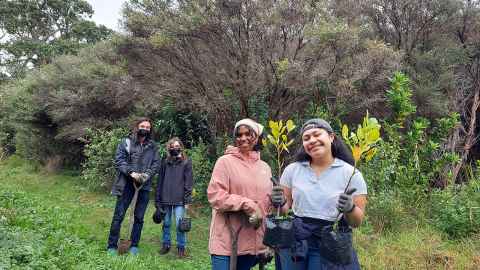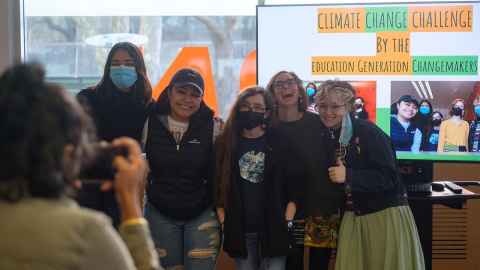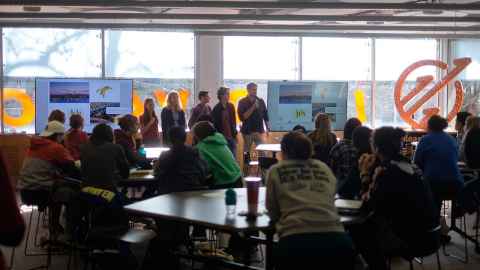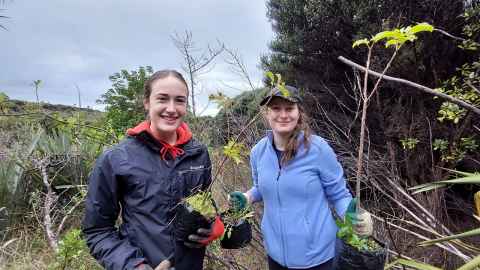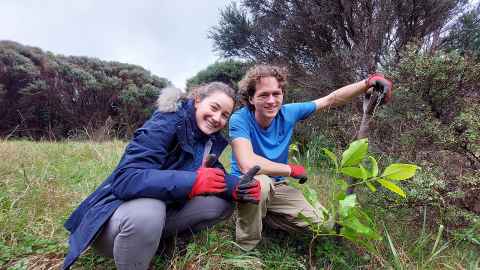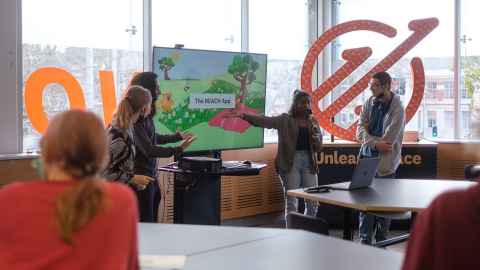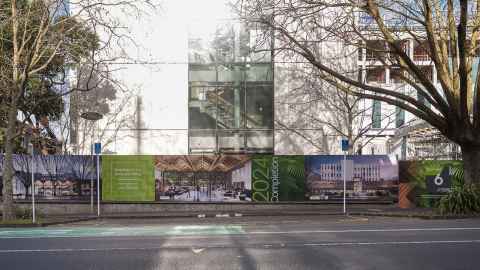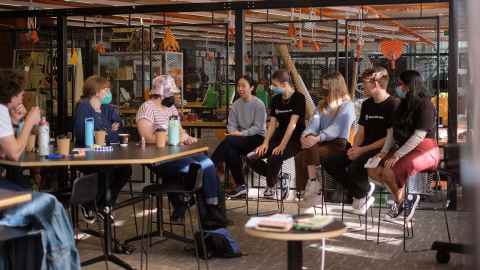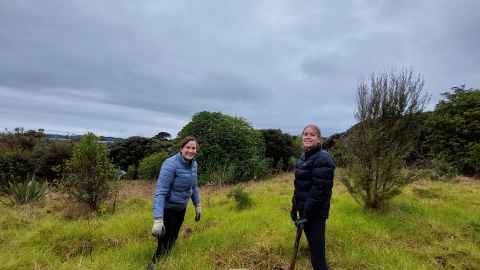Young international students tackle carbon footprint of overseas travel
08 September 2022
What can you do to reduce carbon emissions once you go back home? Generation Changemaker participants take a human-centred design approach to think creatively about what action they might take to make change with real impact.
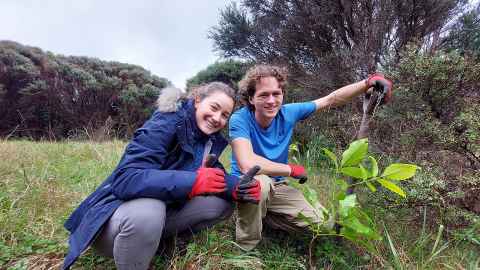
After the recent re-opening of New Zealand’s borders, the University of Auckland was once again able to welcome a fresh cohort of Study Abroad students and provide them with a unique learning experience through the Study Abroad Generation Changemakers programme.
A total of 36 Study Abroad students from the USA, Germany, France and Australia, together with 5 University of Auckland Bachelor of Global Studies students, participated in the two-day workshop from 30-31 July focused on climate action, including the environmental cost of studying abroad.
“It seemed like a good opportunity to connect with other environmentally conscious study abroad students, as well as see the consequences of both studying abroad and seeing what I can do in my own personal life to work to a sustainable and eco-friendly world,” says Michael Fajardo, a student from the University of Delaware, USA.
One thing I’ve learnt is how to change my actions day to day whether
it’s where I buy my clothes from, where I buy my food, and how my travel impacts climate change and my carbon production.
The workshop topics covered the scale of the climate challenge, the carbon footprint of studying abroad and how they can travel more sustainably. Participants then developed their own climate action plan after hearing UoA students share their experience of climate action within the University. It was an opportunity to think about practical things they can do to reduce carbon emissions once they get back home, as well as pitch their ideas to their peers.
“One thing I’ve learnt is how to change my actions day to day whether it’s where I buy my clothes from, where I buy my food, and how my travel impacts climate change and my carbon production,” says Anthea Easdown, a student from the University of Queensland, Australia.
Viet Nguyen, from University of Kassel in Germany, says, “I consider myself a climate activist. I know that I do not know everything and I want to widen my horizons. … I will never take an airplane when there is a better more sustainable alternative.’’
The programme culminated in a field trip to pristine Motuihe Island in the Hauraki Gulf, a 30-minute ferry trip from downtown Auckland. The island has been transformed from farmland to a home for kiwis, tuatara, geckos, endangered native birds, native plants and significant historic sites.
On the island, participants learned about the conservation and tree-planting activities at the nursery and rolled up their sleeves to take part in nursery work, beach clean-up as well as simply enjoying the island.
Generation Changemaker aims to boost participants’ employability skills by building their creative thinking and communication skills, and support their wellbeing by giving them positive, concrete actions to focus on in the face of the climate challenge.
"I would definitely recommend it, it’s been a real pleasure to meet other young people from different parts of the world, and to really learn about different strategies of how we can work together to prevent climate change and work together to solve this issue that’s impacting the whole world and this generation," Anthea says.
If you’re interested in the Study Abroad Generation Changemaker programme 2023, please get in touch with the Study Abroad team.
